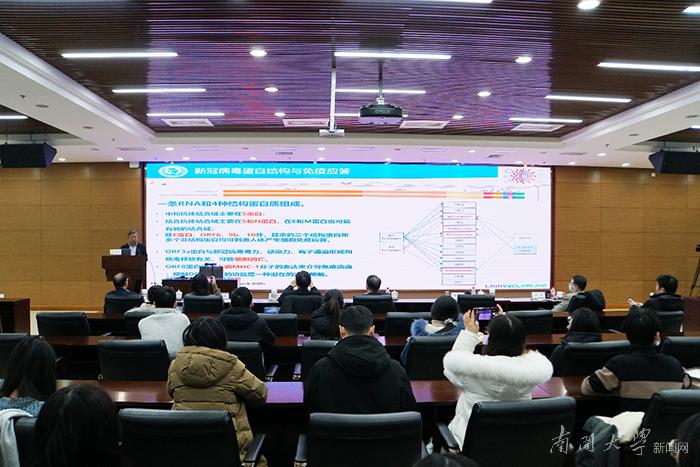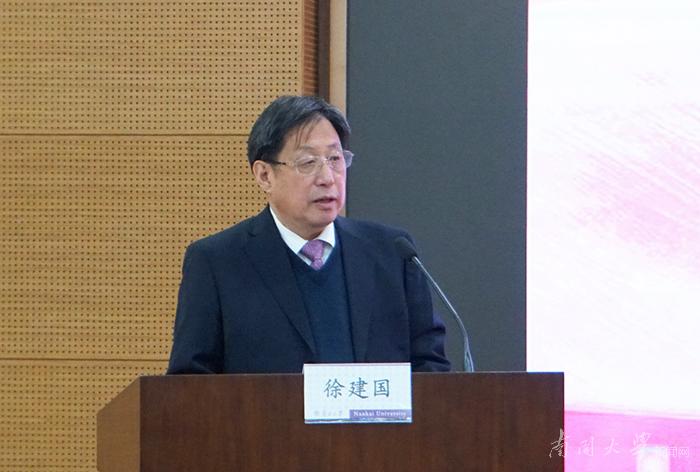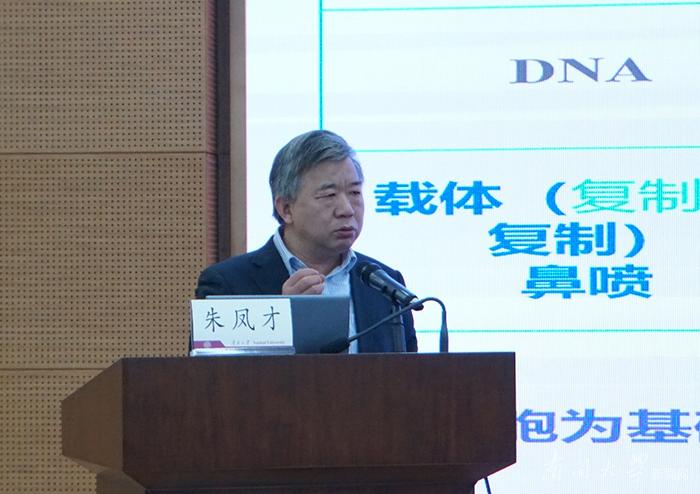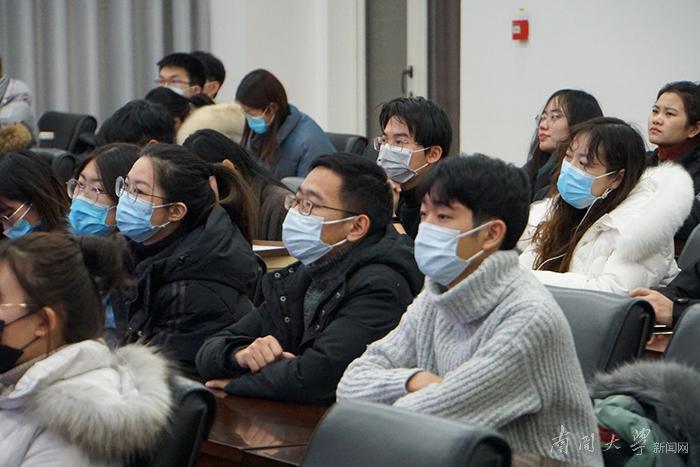Zhu Fengcai, an Expert in the Review of the Priority of COVID-19 Vaccines from the WHO, was Guest at the “Public Health Lecture Hall of Nankai University”

On Jan.6, Professor Zhu Fengcai, an expert in the review of the priority of COVID-19 vaccines from the WHO, was a guest at the Public Health Lecture Hall of Nankai University and delivered a wonderful academic report titled Interpretation of Phase III Clinical Data of COVID-19 Vaccines to the teachers and students of Nankai University. The event was broadcast synchronously through the SOHU network and other network platforms, garnering over 930,000 views.

Wang Lei, Vice President of Nankai University, attended the lecture and delivered “the certificate of Nankai Public Health Lecture Hall” to Zhu Fengcai. Xu Jianguo, an academician of the Chinese Academy of Engineering and the director of the State Key Laboratory of Infectious Disease Prevention and Control of Chinese CDC, presided over the public lecture.

In the lecture, Zhu Fengcai first introduced the protein structure and immune response of the novel coronavirus, and then shared information about the two kinds of vaccines in the pipeline: nucleic acid based and virus or protein based. According to the WHO, as of December 29, 2020, there are 8 kinds of vaccines worldwide, 172 vaccines are in the preclinical trial stage and 60 have obtained clinical trial approval.
Comparison of the efficacy and safety of COVID-19 vaccines
Zhu reviewed and highlighted the six vaccines currently under development, which are BNT162B2 (mRNA vaccine) from Biontech/Pfizer in the US, RNA-1273 (mRNA vaccine) from Moderna in the US, AZD1222 (non-replicating Chadox1 vector vaccine) from AstraZeneca in the UK, Sputnik V (non-replicating AD26, AD5 vector vaccine) from Gamaleya Research Institute in Russia, CNBG's vaccine and Sinovac's Coronavac. He provided a comprehensive review of the phase III clinical trials, which demonstrated the vaccine's protective efficacy in an interim analysis.

Zhu Fengcai pointed out that by comparing the safety of the vaccines that had published clinical results, it was found that the inactivated vaccine had the lowest incidence of adverse reactions, but attention should be paid to abnormal blood glucose. Adenovirus vector vaccine caused fever more obviously, and the incidence of severe adverse reactions of this vaccine was the highest in the UK chimpanzee. Protein vaccine (Matrix-M1) and mRNA vaccine had a higher incidence of adverse reactions, and fever was also obvious. The mRNA vaccine and the viral vector vaccine were better tolerated in the group with older adults.
Special attention should be paid to people with a severe allergic reaction to vaccine and diabetic patients in vaccination.
Zhu Fengcai said: “Priority should be given to autoimmune diseases among the adverse events of particular concern in COVID-19 vaccine surveillance. Groups that are not suitable to receive the inactivated vaccine include patients with grade 2 or higher blood glucose elevation; those who are allergic to any component of the vaccine, or have had previous severe allergic reactions to vaccines (such as anaphylactic shock, acute allergic reaction, urticaria, skin eczema, dyspnea, angioneurotic edema, or abdominal pain); patients with acute disease, severe chronic disease, acute onset of chronic disease and fever, etc.
The current research reveals that the site where the virus mutates does not much affect the site of action of the vaccine, so we believe that the vaccine is still effective against the mutated virus. Of course, sequence alignment or related animal experiments on the mutated virus and the vaccine are needed in order to identify the final results.

Zhu Fengcai is an expert in clinical vaccinology and the review of the priority of COVID-19 vaccines from the WHO. He finished over 100 vaccine clinical evaluations and published 11 papers on vaccine clinical research in the New England Journal of Medicine (NEJM) and The Lancet. In 2009, The Lancet published an exclusive interview and honored him as the leader of vaccine evaluation in China. He exerts great academic influence and is undertaking 8 clinical studies of COVID-19 vaccine in China at present, which cover 5 major technical routes.
The Nankai Public Health Lecture Hall is jointly organized by the the Institute of Public Health of Nankai University, the Tianjin Joint Institute of Public Health and the State Key Laboratory of Infectious Disease Prevention and Control. Plans have been made to invite academicians and renowned experts in public health and related fields to give lectures and make contributions to building a community with a shared health for mankind. A lecture is planned to be held once a month and ten times a year. The main venue is located at Nankai University, and it will be broadcast live across the country.
(Reported by Renming Qiao, Translated by Chengcheng Chang, Edited by STEFAN SARAH DANIELLE and JianjingYun)









